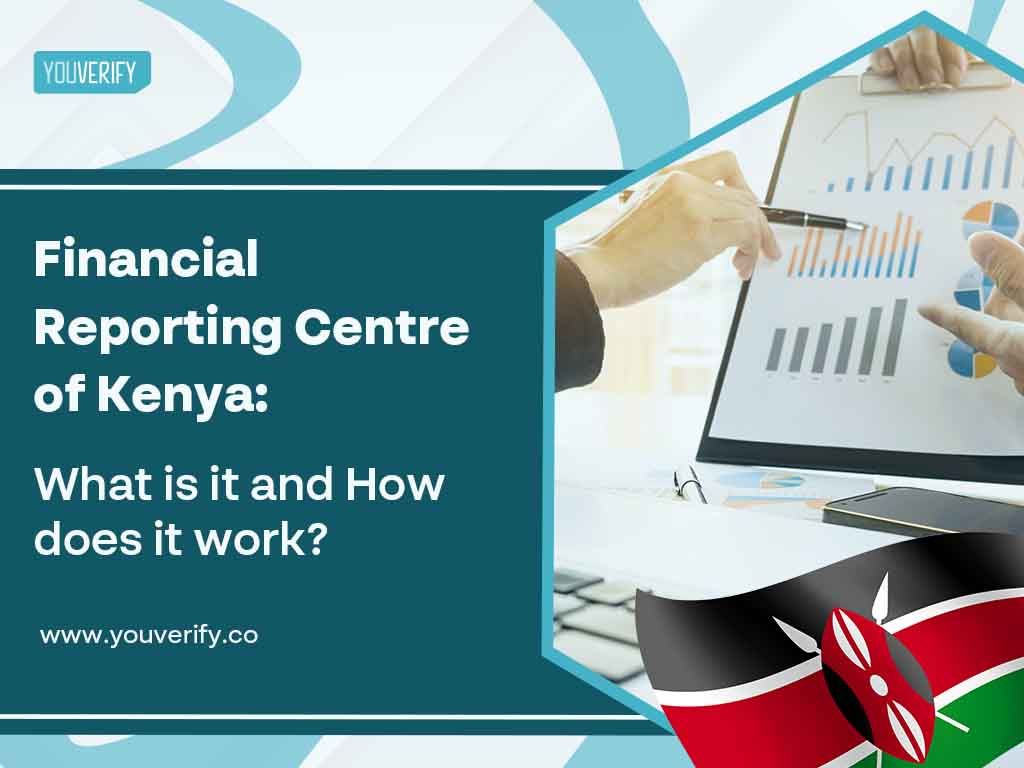To ensure compliance with local laws and regulations, the Financial Reporting Centre requires businesses operating in Kenya to adhere to certain financial reporting requirements. Companies operating in Kenya are required to report any suspicious transactions or activities to the FRC promptly.
According to the United Nations Office on Drugs and Crime (UNODC), the estimated value of illicit funds laundered globally each year ranges from 2% to 5% of the world’s GDP, which equates to approximately $800 billion to $2 trillion annually
FRC is a government agency tasked with detecting, preventing, and combating financial crimes such as money laundering, terrorism financing, and fraud. With Kenya's growing economy and increasing investments, the FRC's mandate has become more critical than ever before.
In this blog post, we'll take a closer look at the Financial Reporting Centre of Kenya, what it is, and how it works to safeguard the country's financial system.
What is Financial Reporting Centre in Kenya?
The Financial Reporting Centre (FRC) is a government agency in Kenya that was established under section 21 of the Proceeds of Crime and Anti-Money Laundering Act, 2009. Its primary mandate is to assist in the identification of proceeds of crime, the combating of money laundering, and the combating of terrorism financing in Kenya.
The Financial Reporting Center is responsible for collecting, analyzing, and disseminating financial intelligence to law enforcement agencies, regulatory authorities, and other relevant bodies to support the investigation and prosecution of financial crimes.
It receives financial reports and other information from various entities, including banks, insurance companies, non-governmental organizations, and other entities that are required by law to report suspicious financial transactions.
Like the FICA act in South Africa, The Financial Reporting Centre also works closely with international organisations and other countries' financial intelligence units to share information and coordinate efforts to combat money laundering and terrorism financing. Its aim is to enhance the integrity of Kenya's financial system and contribute to the global fight against financial crimes.
What is the Role of FRC Kenya?: Functions of Financial Reporting Centre Kenya
1. Providing Guidance on Financial Reporting:
The centre provides guidance to companies on how to prepare financial reports in compliance with the set standards. This helps to improve the quality of financial reporting, which is critical in facilitating better decision-making by stakeholders.
2. Enforcing financial reporting standards:
The Financial reporting centre in Kenya ensures that companies comply with the financial reporting standards set by the government. This helps to promote transparency and consistency in financial reporting, which is critical in enhancing investor confidence in the country's financial sector.
3. Promoting Financial Literacy:
The centre plays a critical role in promoting financial literacy by providing training and education on financial reporting to stakeholders. This helps to enhance the knowledge and skills of stakeholders, which is critical in improving their understanding of financial reports.
4. Facilitating Financial Sector Development:
The Financial Reporting centre promotes the development of the financial sector in Kenya by providing a framework for financial reporting, which is critical in attracting investments and promoting economic growth.
In summary, the financial reporting centre in Kenya plays a critical role in promoting transparency, accountability, and financial sector development in the country.
How Does the Financial Reporting Centre Work in Relation to AML in Kenya?
The key regulator responsible for anti-money laundering (AML) efforts in Kenya is the Financial Reporting Centre (FRC). The FRC is mandated to receive, analyze and disseminate financial intelligence to relevant law enforcement agencies for action. It works to combat money laundering and terrorist financing through a combination of regulatory, investigative, and educational measures.
Some of the key ways in which the FRC works in relation to AML in Kenya include:
1. Conducting AML assessments:
The FRC conducts risk assessments to identify potential money laundering risks and vulnerabilities in Kenya's financial system. The assessment helps to identify areas that require increased regulation and monitoring.
2. Developing AML Policies and Guidelines:
The FRC develops policies and guidelines aimed at preventing money laundering and terrorist financing in Kenya. These policies are designed to help financial institutions, designated non-financial businesses and professions comply with AML regulations.
3. Monitoring AML Compliance:
The FRC monitors compliance with AML regulations and provides guidance to reporting entities on AML compliance requirements. It conducts on-site inspections to ensure that financial institutions and other reporting entities comply with AML regulations.
4. Investigation and Prosecution:
The FRC works with other law enforcement agencies to investigate and prosecute cases of money laundering and terrorist financing in Kenya.
Overall, the FRC works to prevent money laundering and terrorist financing in Kenya by providing guidance, monitoring compliance, and investigating and prosecuting cases of money laundering and terrorist financing.
In Conclusion
Adopting and adhering to the FRC law is beneficial to any business or financial institution. With the FRC law, you can reveal, prevent, and monitor every illegal financial activity in your organization.
Startled as to how to begin the process of being FRC compliant? Youverify can assist you with the FRC identification and verification of your current and prospective clients, partners and employees. with Youverify Workflow Builder, reliable identity verification and AML automation tool.
Your FRC verification now takes seconds, as youverify is designed to help you satisfy all FRC Act AML requirements in addition to optimizing costs, and labour requirements, and hastening business processes. Need a demo? Request one today!
